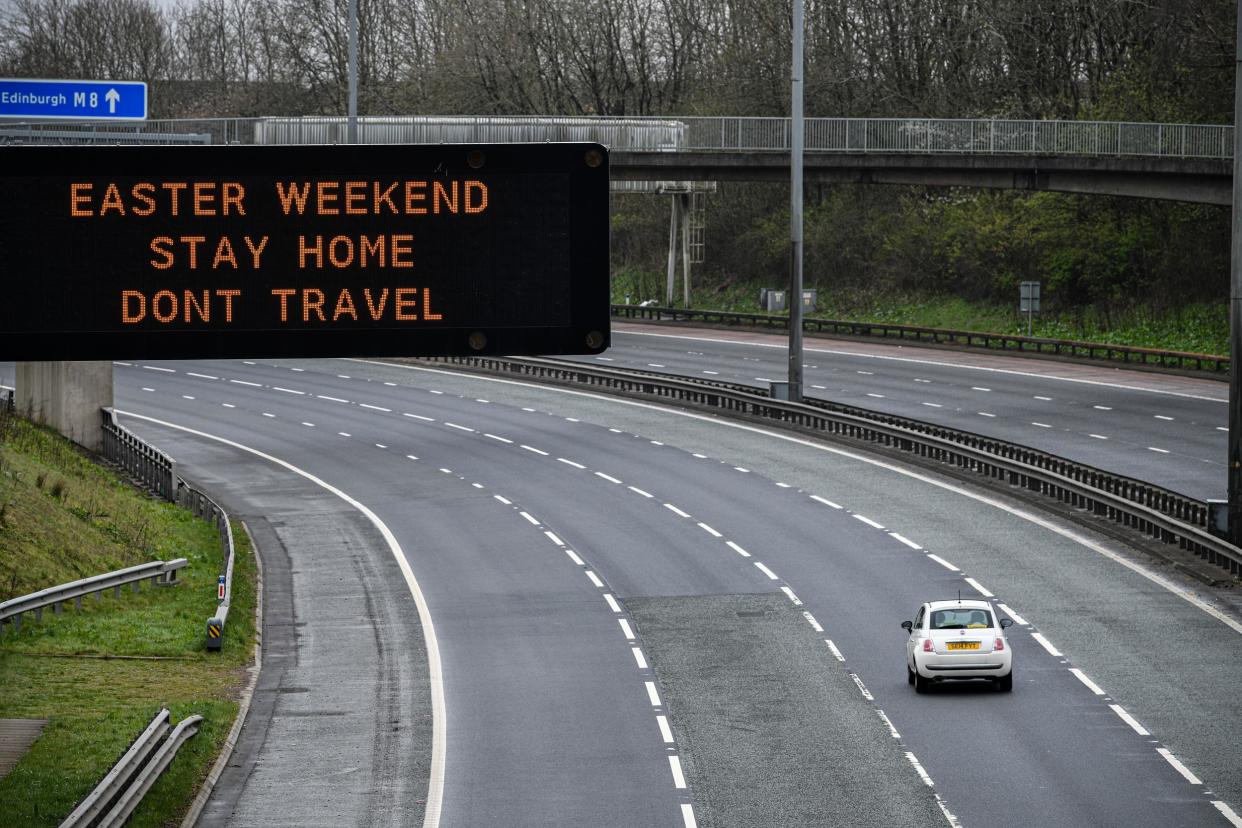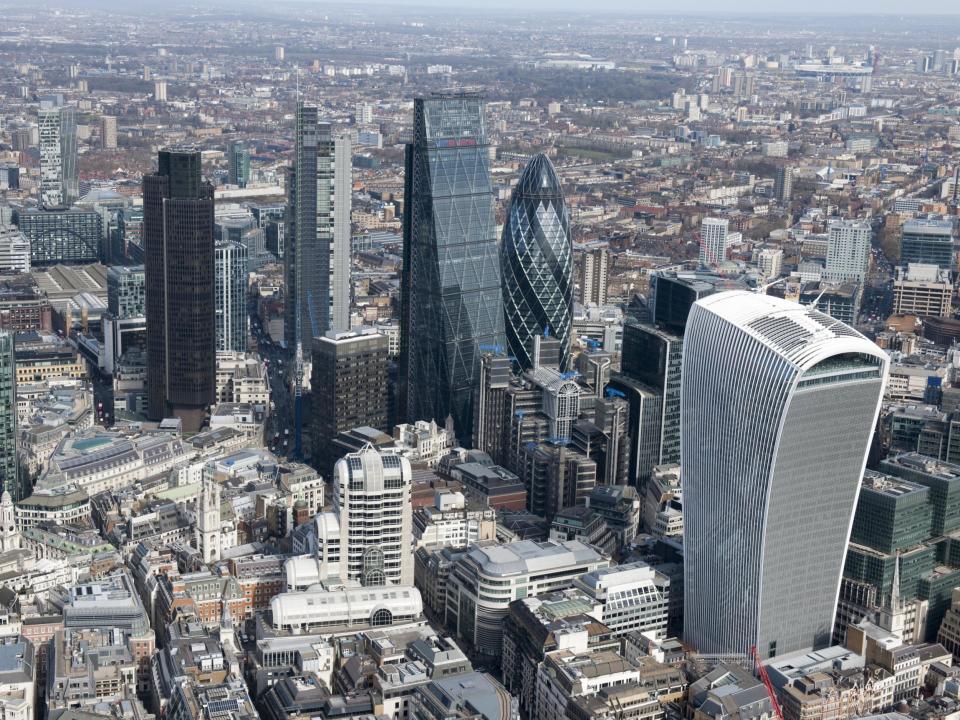How will the UK’s coronavirus lockdown end?

The government has given no official clues as to how or when it might start lifting coronavirus lockdown restrictions such as school and workplace closures.
Though some countries across Europe like Denmark and Austria are taking baby steps towards reopening shops and schools, they were quicker to introduce restrictive measures. Only in China is a lockdown being phased out. So much is unknown.
The message from the government’s chief scientific adviser and chief medical officer this week has been that the UK needs to get past the peak before lifting measures can even be considered.
But once the pandemic is over, the government will have to start lifting measures. Here’s what we know about how restrictions could potentially be phased out.
Social distancing

The government’s guidelines tell people to avoid going outside except for a small set of activities: limited exercise, buying food and medicine, going to an essential job, or giving care.
If lockdown measures are to be relaxed, says Paul Hunter, professor in medicine at the University of East Anglia, it would probably be done by gradually expanding the range of these exceptions.
“I would do it one step at a time and expand the number of exceptions more widely in a gradual way,” he tells The Independent.
“Then look at the more social things a bit later, and say people can meet with their families now, but don’t go to rock concerts and large pub quizzes, things like that. I think that’s the way it would happen.”
Some things would probably come before others. But he sounds a note of caution: “We don’t know for certain and I think people are trying to work on this at the moment.
“At present the UK has not made it clear what our exit strategy will eventually be and there are very good reasons for this. We simply do not have enough information to make these decisions now. For example, we still do not have good data on the amount of asymptomatic illness in the community, knowledge that is vital to know what may happen after any relaxation of restrictions.”
Offices and other workplaces

The government is expected to initially try to get as much economic activity for as little risk as possible: prioritising businesses that contribute to the economy without mixing too many people into one place.
“I suspect that what would happen is that we would see relaxation first around areas that are more important to society and the economy,” says Prof Hunter. “For example, jobs: people would be able to go back to work, possibly more freely than they are at the moment.”
But one of the requirements for workplaces to reopen, says Dr Sridhar Venkatapuram of the Global Health Institute at King’s College London, is a higher level of confidence about who is immune, and who has the disease.
“Imagine that your boss calls you and tells you to go back to work: you might say, well, is it safe?” he tells The Independent.
“There’s going to have to be a point at which individuals are convinced that there is safety in being able to go out of their house and engage in work or any of the activities that they’re used to.
“So if this phasing out is going to happen there will have to be a dramatic improvement in the knowledge of our infections, where they are, who has them.
“You could implement a phasing out policy tomorrow but I guarantee you that a significant population would stay home: because they would say they don’t trust it. A massive amount of testing will have to be done, greater clarity about levels of infections – that all has to be implemented to follow through on the phasing out.”
Many jobs that could continue to be done from home might be still advised to do so. There is also the question of how to cater for people who have already lost their job.
“They will also be trying to get as many people who are unemployed, I would think, into jobs that don’t have high social interactions,” says Dr Venkatapuram.
Pubs, bars and restaurants

But it would be unlikely that all workplaces would come back at the same time. Those where the risk of the disease being passed around is highest would probably be put on the back-burner.
“I could still imagine an easing of pressure on people going to work, but not on things like clubs and pubs and bars and cinemas – things that you don’t have to have,” says Prof Hunter.
“I think we will initially see an expansion of the number of industries encouraged to return to normal work, then the reopening of schools and, somewhat later, bars and clubs and other entertainment venues. However, we will still need effective disease surveillance followed by isolation and rigorous contact tracing for some months.”
Pints and date night films at the cinema might be some of the last things to come back.
Schools

The closure of schools is one of the more scientifically controversial parts of the lockdown, but they might end up being one of the first things to reopen.
“I suspect we might open schools again, partly because there is still debate about whether school closures are actually beneficial or not,” Prof Hunter tells The Independent.
“We’ve not answered that, and there are very good reasons why school closures, in terms of the children, might actually not be that useful. And if they don’t get that ill, maybe they’re not that infectious – but it is a maybe.”
But when schools do eventually open their doors again, it’s possible that they could do so with some restrictions in place on pupils.
One study published in The Lancet medical journal, which looks at data from the 2003 Sars outbreak in China, suggests students could be prevented from mixing and have social-distancing measures imposed during class.
“Interventions in schools, such as closing playgrounds, keeping students in constant class groups/classrooms; increasing spacing between students in classes, reducing the school week and staggering school start and break times across years or classes, should be considered if restrictive social-distancing policies are to be implemented for long periods of time,” says Professor Russell Viner, one of the authors of the study.
The Times on Wednesday reported one anonymous “senior minister” saying educational establishments could open again after Easter – though in public the government has given no hint of what might come.
Sporting and cultural events

Unfortunately for sports fans, football matches and other mass gatherings look like they will be the last parts of society to return to normal – they simply involve too many people.
“It definitely won’t be large public gatherings [to be phased back first] – that is the opposite of what we want,” says Dr Venkatapuram.
“What it will be is a slow allowing people to go back to work where they will not be in crowded or group situations.”
Thus, Glastonbury is likely to remain cancelled; the Premier League postponed – along with other major events.
What will come next?
Most experts are agreed that increased testing and “contact tracing” are crucial to allowing society to return to normal as quickly as possible. But even with these measures, some are warning that lockdown measures could be switched on and off for months until a vaccine is found, or enough people build up immunity – both prospects are potentially one or two years away.
“To see us through the next year or more, we must all prepare for several cycles of a ‘suppress and lift’ policy,” Dr Gabriel Leung, chair of public health medicine at the University of Hong Kong wrote in The New York Times.
“Cycles during which restrictions are applied and relaxed, applied again and relaxed again, in ways that can keep the pandemic under control but at an acceptable economic and social cost.” The end of the lockdown may not be the first end of the lockdown.

 Yahoo News
Yahoo News 
